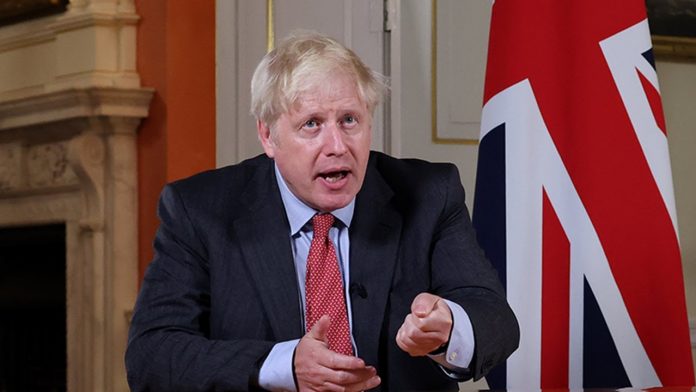A formal apology by Boris Johnson in the House of Commons to the families of the Ballymurphy victims has been branded “not sincere or complete”.
Opening Prime Minister’s Questions, Mr Johnson read out the names of the victims killed in west Belfast 50 years ago in shootings involving British soldiers.
The prime minister added to MPs: “On behalf of successive governments, and to put on the record in this House, I’d like to say sorry to their families for how the investigations were handled, for the pain they’ve endured since their campaign began almost five decades ago.”
The apology came after a coroner found the 10 people who died in August 1971 were “entirely innocent”.
The army was found to be responsible for nine of the deaths, which included a mother-of-eight and a Catholic priest.
Addressing the Commons today, Mr Johnson said: “No apology can lessen the lasting pain.
“I hope they may take some comfort in the answers they have secured and in knowing that this has renewed the Government’s determination to ensure in future that other families can find answers with less distress and delay.”
The apology has been rejected by some of the Ballymurphy families who complained they were given no advance notice of it, and that the prime minister did not directly apologise for the actions of the soldiers.
Sinn Féin president Sinn Fein president Mary Lou McDonald said: “Boris Johnson has continued, I believe, to add insult to injury when it comes to the Ballymurphy families, I don’t think he has delivered anything that approximates a sincere or complete apology.
“I think even though the truth now has been spoken that each of the victims of Ballymurphy were absolutely innocent, unarmed and posed no threat to anyone, the British prime minister still cannot accept and say out loud that a para regiment, that British soldiers, came and turned their guns on innocent civilians in that community.
“For so long as he is not capable of verbalising the truth of what happened on that day, and naming it and saying it out loud, I think we have a problem.
“The bigger problem beyond that is that Boris Johnson and his government are determined to deliver an amnesty for British soldiers and that is unacceptable to the Ballymurphy families, to many other families who still await truth and justice.
“It’s unacceptable to all strands of political opinion on this island north and south and in direct contravention of the Stormont House Agreement.
“I think the British prime minister should stick to the agreements that have been made and should accept that now the time is long past where he can hide from the truth of actions of British soldiers here in Ireland.
“That needs to be faced up to… if a genuine and authentic apology is made, I have no doubt the families will receive that very graciously.”
Mr Johnson’s handling of the government’s apology for the Ballymurphy killings had previously been heavily criticised by families who lost loved ones.
The first news of the prime minister having apologised emerged in a Downing Street read-out of a phone call he had with Stormont First Minister Arlene Foster and Deputy First Minister Michelle O’Neill the day after last week’s inquest ruling.
Bereaved relatives dismissed this as a “third-hand” apology and their anger intensified when questions were raised over whether Mr Johnson had actually said “sorry” on the call with Ms Foster and Ms O’Neill.
Statements issued by both parties after the call made no reference to an apology.
The following day Mr Johnson sent a letter to the Ballymurphy families to apologise to them in writing.
This again drew an angry response from the relatives, who claimed the prime minister should make a public statement in Parliament on the shootings.
They also criticised him for referring to the killings as “events” rather than a “massacre”.
In a separate government statement the following day, related to a meeting Mr Johnson had with Taoiseach Micheál Martin, Downing Street did refer to the shootings as a massacre.







